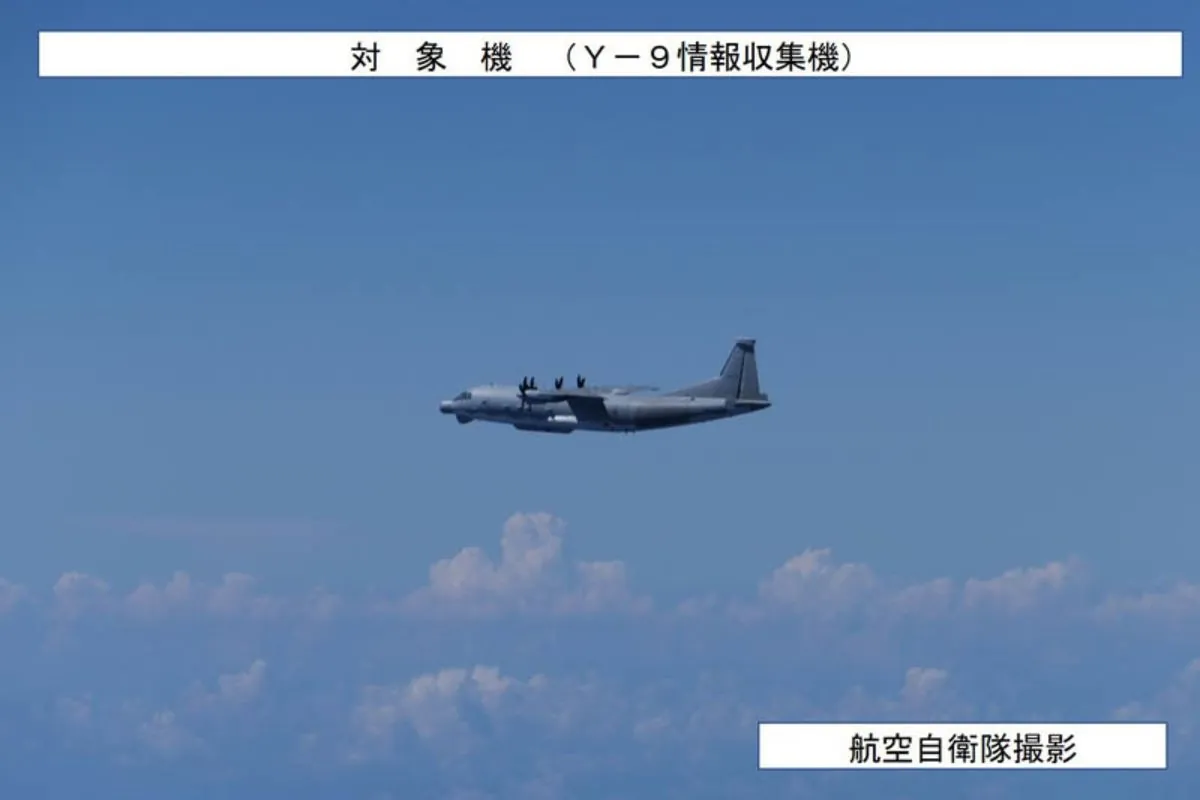On August 27, 2024, the Japanese government issued a strong condemnation following an airspace violation by a Chinese military aircraft. Yoshimasa Hayashi, Japan's Chief Cabinet Secretary, addressed the incident during a press conference, labeling it as "utterly unacceptable" and a "serious violation of Japan's sovereignty."
The breach occurred on August 26, when a Chinese Y-9 reconnaissance plane entered Japanese airspace over the Danjo Islands, west of Kyushu, for approximately two minutes. In response, Japan's Air Self-Defense Force scrambled jets, and a Chinese embassy official in Tokyo was summoned to address the situation.
This incident marks the first recorded airspace violation by China's military, although previous breaches by non-military Chinese aircraft occurred in 2012 and 2017. The Y-9, a medium-size, medium-range transport aircraft developed by Shaanxi Aircraft Corporation, was identified as the intruding vessel.
Hayashi emphasized the government's commitment to monitoring Chinese military activities near Japan's borders, stating that they would remain "fully prepared for any airspace violation." This stance reflects Japan's increasing defense spending and efforts to revise its national security strategy in response to regional security concerns.
The airspace violation has reignited discussions about ongoing territorial disputes between Japan and China, particularly regarding the Senkaku Islands in the East China Sea. These tensions have persisted despite the establishment of diplomatic relations between the two countries in 1972.
Japan's response to this incident is constrained by its constitution, specifically Article 9, which limits its military to self-defense purposes. However, the Japan-U.S. Security Treaty obliges the United States to defend Japan in case of an attack, providing additional security assurances.
As China continues to expand its military capabilities and presence in the East China Sea and South China Sea, incidents like this highlight the complex geopolitical landscape in the region. Japan's Air Defense Identification Zone (ADIZ) extends beyond its territorial waters, which are defined by the United Nations Convention on the Law of the Sea as up to 12 nautical miles from a country's coastline.
While the Japanese government refrained from disclosing details of the diplomatic discussions with Beijing, the incident underscores the need for continued dialogue and conflict resolution mechanisms between the two nations to prevent further escalation of tensions in the region.
